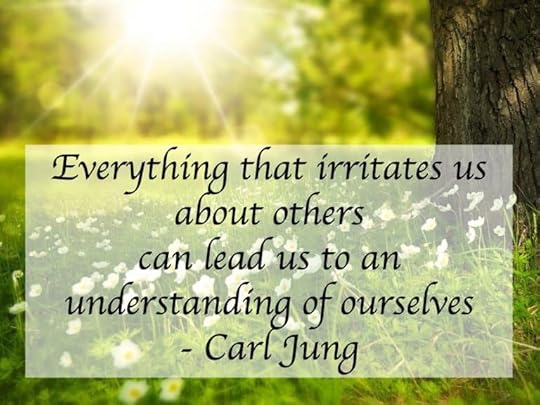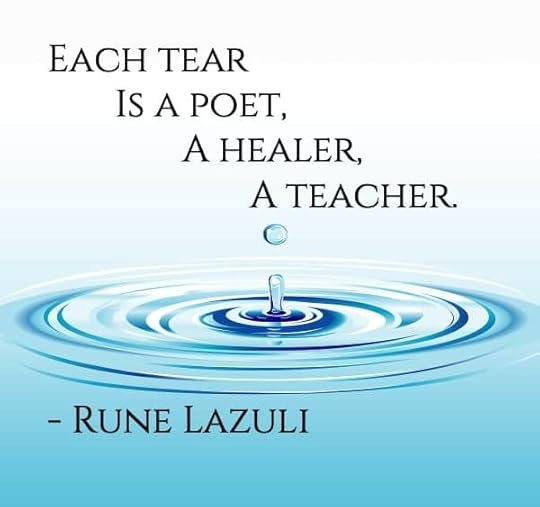Tina Hallis's Blog, page 6
July 10, 2022
When Everything Changes in an Instant – What if You Had Been on Flight 1549?

For 90 long seconds, Ric knew he was about to die. The pilot had just shut off the sputtering engines and announced over the intercom these three words; “Brace for impact.” The clattering of the engines had stopped and the plane became eerily quiet as he noticed that it was lined up with the Hudson River. Ric could tell by the terror in the eyes of the flight attendant that this was the end. He knew what happened to planes when they hit the water; they were ripped apart.
Ric was surprised that he wasn’t afraid. Instead, he was overcome with deep sadness and regret. Everything was about to be over in an instant. He closed his eyes.
I’ve been listening to The Drive podcast where Peter Attia interviews Ric Elias. Ric was a passenger on US Airways Flight 1549, that fateful flight that miraculously landed in the Hudson River on January 15 of 2009.
After impact, Ric opened his eyes and the plane was still intact. He was given a second chance at life!! Ric talks about how his life changed after that experience. In his TED talk, he shares three things he learned that day.
He no longer wants to postpone anything in life. He wants to live with urgency and purpose.He doesn’t want to waste time on things that don’t matter with people that matter. Instead of trying to be right, he chooses to be happy.He realized how much he loved his life. And he realized that what was most important to him, above all else, was to be a good dad.If you were one of the people on that flight that day, how would that experience change you?
I plan to revisit Ric’s TED talk often to help me focus my intention, my gratitude, and my attitude; to help me keep a healthy perspective on my problems and the problems of the world around me.
July 3, 2022
The Freedom to Choose Your Thoughts = More Freedom from Stress

In the spirit of the July 4th Independence Day Holiday here in the United States, I wanted to talk about freedom this week; with a little twist. I want to talk about our own individual freedom that is influenced by our thoughts and beliefs.
If we focus on all that’s wrong in the world (and there’s plenty of it), then we can easily convince ourselves that the world is a terrible place. If we believe that the world is a terrible place, we will be on the lookout for proof; and we will find it. As the cycle continues, it weaves together a harsh reality that is solely based on our thoughts.
This “reality” is also our own self-made prison. It limits our joy, our relationships, and our love of life.
“Make not your thoughts your prisons.” – William Shakespeare
But it doesn’t have to be this way. We have the freedom to change our thoughts. We can purposely also notice the good in the world. And as we practice, we notice even more. Now we create an entirely different reality! Now we enjoy more of what life has to offer with greater freedom from stress and worry.
A new friend of mine passed away from cancer this week. She was my age. I didn’t know her well, but she left a lasting impression with her parting advice. She said as parents we feel it’s our job to worry about our kids, and if we don’t, we’re somehow failing. She said this is a lie! IT IS NOT our job to worry. She said our role is to help, laugh, grow, enjoy, and spend time with our kids & others. We should make them feel heard, loved, seen. We are not built to take on so much worry – it takes our whole body down!
If your thoughts are keeping you locked in a prison of worry, I encourage you to do whatever you can to break free. Check out my list of books and resources here. Find a therapist, counselor, coach, or friend you can honestly share with. Take time to explore what life means to you. Get back to nature.
Let freedom ring!
June 26, 2022
Letting Others Know It’s OK to Not Feel OK – Offering Validation Instead of Advice

This morning my daughter was headed off to a 10-hour shift at her retail job. She was tired and unenthusiastic. This was a new job so there was still the stress of trying to learn her role. She had a couple of friends who worked there, but they weren’t going to be working this day. And she would be on her feet all day.
My first thought was to try to cheer her up. “Hey! Maybe you will get to know one of your new coworkers.” And, “It’s still better than your job a few years ago pulling weeds out in the heat.” Or, “That’s why they call it work and not fun.”
But then I checked in with myself. Was there a better approach? How could I validate her feelings instead of trying to change them?
“I’m sorry. It sounds like a stressful, lonely, and discouraging day. I hope it goes well.” She said, “Thank you.”
Have you ever had a situation you were dreading? Did someone try to cheer you up? If so, how did it feel? I know there are times when a little cheering up does help, but often, I just want someone to understand how I’m feeling. I want to feel OK with not feeling OK. I don’t want advice. I just want a little empathy.
I like to think of myself as a positivity catalyst. I want to help other people feel happier. But I continue to learn that sometimes the best way I can support others is to let them know that it’s OK to not feel OK.
Empathy doesn’t require that we have the exact same experiences as the person sharing their story with us… Empathy is connecting with the emotion that someone is experiencing, not the event or the circumstance. – Brené Brown
Can you think of recent examples where validating someone’s feelings would have been the best option? Or how about an example where you wish someone else would have just offered you a little empathy instead of advice?
June 12, 2022
Finding Your Path for Positivity

After finishing my certification in Positive Psychology with Tal Ben-Shahar and the WholeBeing Institue in 2014, I was excited to start sharing the life-changing content I’d been learning. I was also trying to digest and implement all the great insights and strategies into my own life. It was a year later that I finally came up with a framework that made Positive Psychology easier for me to use and teach. I call it The Path for PositivityTM. It summarizes five key concepts that help me understand and implement my learnings.
Understand why it’s hard to be positive when our survival instinct naturally focuses on problems and dangersRealize we can change our thinking and take advantage of our neuroplasticityImprove our ability to manage our thoughts and our saboteursPractice tools to make it easier to shift our thinkingIdentify ways to remember we have a choiceHere’s a little more about each step in the path.
I believe that learning how our survival instinct works helps us understand why it’s so easy to get stuck in negative thinking. It’s a normal part of our biology and a universal struggle (although more for some people than others). Once we know this, we can acknowledge it and look for solutions.
It’s only been in the past 20 years or so that science has begun to more fully recognize the power of neuroplasticity. Our ability to physically and functionally change our brains provides real hope that we can get better at changing our thinking. Our capacity to see more of the good stuff in our work, our relationships, and our life can get easier.
The ultimate goal in all of this is to better manage our thoughts so we spend more time with thoughts that serve us instead of those that are working against us. It’s easy to get stuck focusing on past, present, and future stresses. Soon, we can find ourselves in a downward spiral that can steal our happiness, our health, and our life.
Now there are studies that have looked at different strategies and tools that can make this shift easier. Research supports the idea of spending time in gratitude, looking for three good things in your day, nurturing your social network, and many others. These tend to be simple things we can incorporate into our busy lives.
But we are so busy! How can we possibly remember to notice our thoughts? There are so many distractions and so much to do. That’s where the last step comes in. We need tips and tricks to remind us that we have a choice. Check out this post from eight years ago for some ideas.
Which step(s) in this path is the most helpful or interesting to you? You can search keywords here to find more related positivity tips.
June 5, 2022
Life’s Lesson I Learned from Warm Brownies

This is one of my favorite early tips from seven years ago. Enjoy!
The brownies were fresh from the oven. Still warm and fudgie and oh so yummy! I was taking little bites so I could savor the chocolatey flavor. These had to be some of the best brownies I’d ever had!
Suddenly, I realized I had gotten distracted and had started thinking of the next chore I wanted to get done. I looked down at my plate. My delectable brownie was GONE!! I had missed out on enjoying those last bites . . .
It’s funny how right then it hit me; this is such a great analogy to how we live our lives. We get busy, distracted, caught up in what we need to get done next and we forget to enjoy the moment. Then it’s too late and the day is done, or the summer is over, or our kids have moved away, or our life is winding down. We don’t realize how quickly the time is passing until something happens that makes us stop and reflect. It reminds me of the quote by the author Colette,
“What a wonderful life I’ve had. I only wished I’d realized it sooner.”
What reminders can we use to help us pause? I like to use pictures or quotes in my office, on my bathroom mirror, file cabinet, or refrigerator. It could be a ring or bracelet. Maybe it’s a book, card, or poster. Here are some previous weekly tips to help us remember to take the time to pause, savor, and appreciate the moment.
What tips do you have that remind you to enjoy the moment?
May 29, 2022
A Thought Experiment – Changing How You Interact with Others

I invite you to join me on a little thought experiment.
What if everyone in your life was exactly as they were supposed to be? I’m not saying that they suddenly changed in every way you wished they would. No. I’m proposing that instead of feeling they need to be “fixed,” you accept them as they are. Your previous feelings that this person is too judgmental, that one too unappreciative, this one too self-centered, or that one too unmotivated, are gone.
It may sound silly, but just play along with me. Imagine that every time someone did or said something that bugged you, instead of getting frustrated, you reminded yourself that they are supposed to be that way; that this interaction is a gift for you to learn about yourself, to get curious about your own reactions. It’s a chance to reflect on your own values, beliefs, preferences, and the kind of person you want to be. Maybe it’s an opportunity to practice patience and listening.
If you could truly accept the way this other person was being, imagine how it would change your response. Imagine how you could stay in your Sage, calm, curious, and maybe even compassionate. Even if you didn’t agree with their words or behavior, you might acknowledge that they’re doing the best they can as an imperfect human who struggles with stresses, wounds, and baggage; that we are all biased based on our experiences and what we know.
Now imagine that you choose a response from this place of calm. You can still set boundaries, You can still respectfully disagree. You can still share how it makes you feel. But instead of your Saboteurs being in charge, instead of feeling upset, hurt, or irritated, your Sage is in control of your emotions, words, and actions.
How might this interaction turn out differently?
May 22, 2022
Our Survival Instinct to the Rescue? Maybe Not

One of the most important insights from my studies of Positive Psychology that has had a huge impact on my life has been understanding our survival instinct.
That very first reaction, that first thought that enters our head after an encounter or situation, is a reflex. It’s super fast and takes no effort or intention on our part. It is our survival instinct, there to keep us safe. It’s diligently working when we have to swerve to avoid an inattentive driver who pulls out in front of us or abruptly stop to avoid stepping on a potentially dangerous snake.
But it’s also quick to action when our partner doesn’t fill the dishwasher or when a friend doesn’t call us back. Now, instead of preventing physical harm, our survival instinct jumps in to protect us from emotional harm. Its job is to assume the worst about other people. Our partner doesn’t care that they’re not doing their part. Our friend doesn’t really value our friendship.
And once that first thought is planted, it can swirl into a downward spiral. Our friend doesn’t appreciate us. They don’t want to be friends with us. They don’t like spending time with us. They’re self-centered and unsupportive.
Our diligent survival instinct is also there to jump in and offer its judgment when we doubt ourselves, get discouraged, or are disappointed. It doesn’t matter if the situation is happening to us or inside us. It looks for and anticipates anything that might be a problem, a danger, or unfair because we might need to take action to protect ourselves.
Here’s the kicker! When things are good; when there is no threat, when people are nice and life is going well, our survival instinct sees it all as BORING! Good situations are not a threat so it ignores them. No action is needed.
So if we go through life letting our survival instinct run our thoughts (as it is designed to do), we will pay way more attention to anything that might be bad and totally miss all the good stuff. Life will seem more stressful and less enjoyable than it really is.
This week, see if you can notice your survival instinct jumping into your thoughts. What is it assuming?
May 15, 2022
Have You Heard of Post-Traumatic Growth?

Most people are familiar with the term “post-traumatic stress disorder” (PTSD)– the condition that can occur after someone experiences or witnesses a life-threatening event. It might be an accident, a disease, a loss, etc. The result can be debilitating stress and fear that make it difficult for someone to function normally in their everyday life. What may surprise you is that people who have a traumatic event in their lives are more likely to experience “post-traumatic growth (PTG).” These people discover a renewed appreciation for life and find life easier and more enjoyable than before, yet few people have ever heard of this term.
There are often three ways in which people improve:
Better relationships. For example, they may value their friends and family more and feel an increased sense of compassion for others.See themselves differently. For example, they may feel they have personal strength and resilience while accepting their weaknesses and limitations.Changes in their life philosophy. For example, they may feel appreciation for each new day with a better ability to live in the present and re-evaluate their priorities and values in life.Just to be clear, this does NOT mean that these people bypass the suffering and pain before finding a different path. It means they don’t get stuck there. They overcome the downward spiral and find a way to grow and learn.
Does this sound familiar? Can you think of past ordeals in your own life that have made you stronger, wiser, and more compassionate? They may have been gut-wrenching in the moment, but maybe you look back now and see them as a “gift” in disguise.
Why is knowing about post-traumatic growth important? There is a theory that if more people were aware of this possibility, more people would have the hope needed to rise above their fear and anxiety after an event. Statistically, there is a good chance that all of us will have a traumatic experience in our lives, so let’s be prepared. For more information and inspiring stories, check out PostTraumaticGrowth.com.
May 8, 2022
A Cure for a Vulnerability Hangover: Don’t Be Afraid to Be You

I’m honored to share a guest positivity tip from my friend, Lisa Robb, an amazing colleague who has wonderful wisdom to share. Lisa is a professional life coach, certified running coach, and a national speaker on mindset.
I went to a conference for entrepreneurs last week in Des Moines. We were all invited to take a turn to grab the microphone and introduce ourselves and our business.
The organizer recognized that people have different levels of comfort in doing this. So we had the opportunity to either come up on stage or to introduce ourselves from wherever we were sitting.
When it was my turn, I literally ran up on stage. I absolutely love having a microphone. I love telling stories. I love sharing ideas. I started by telling everyone how I felt. Which was like a full bottle of Diet Coke that had been shaken. And once I got the microphone, it felt like the cap was twisted off! I only had the stage for a couple of minutes. I shared who I was, what I did, and what I was celebrating.
And then almost immediately upon walking off stage, I had a vulnerability hangover. My thoughts:
“That was way over the top.”
“You need to take it down a notch.”
“You are too much.”
And the classic “Nobody likes you.”
Luckily, I was able to snap out of it due to another participant going out of her way to track me down. She said something along the lines of, “If we don’t have time to connect and chat here today, I want to make sure we set something up. I love your energy!” Isn’t it amazing how being “seen” by ONE PERSON can make all of the difference?
And then I was reminded. My job isn’t to make sure people like me. My job is to be authentically me. Some people will be attracted to my energy, and others will be repelled by it. And THAT’S OKAY!!
And from there I realized that even if every single person in the room was repelled, it doesn’t mean that I need to change. It just means I need to change rooms.
I invite you to pause to explore your own authenticity. What does that mean to you? Where might you be trying to fit in? What would happen if you let yourself stand out? Are you in the right room? And if you’re already rocking your authenticity, how might you go out of your way to “see” it in others more often?
As the Chief Inspiration Officer of Raining Glitter Coaching, she works with women to leverage the things they can control to create a pinch-me-I-must-be-dreaming-life. Lisa earned both her masters degree in education as well as her professional life coaching certificate at UW-Madison. She has also earned her Professional Certified Coach credential from the International Coach Federation. (www.rainingglittercoaching.com)
Lisa is also the founder of the 12 Minute Turtles, an innovative virtual running community for back of the pack runners. As a certified running coach she helps women who are new or returning to running cross the finish line of a half or full marathon. The Turtles are on a mission to inspire others one city at a time. Next up: Missoula, Montana! (www.12minuteturtles.com)
May 1, 2022
Is It More Important to Win or Have Fun? You Can Change the “Rules”

When you were little, do you remember how important it was to win whatever game you were playing with family or friends? I remember games like Go Fish, Clue, Scrabble, and Monopoly. As I got older (in my 20s and 30s), winning became less important, but it was still the reason for playing. After my daughter started getting old enough to play, I wanted her to win.
Then one day I had an epiphany. My daughter was probably six or seven years old. She was getting frustrated with the way the game was going. As I watched her emotions build, I thought, “What’s the purpose of playing this game?” It hit me. This was supposed to be fun!! If we weren’t having fun, could we just stop playing and do something else? Was it legal to just quit a game before somebody won? I decided to give it a try. The result? My daughter and I were both happier!
Later, I had another epiphany. Could these same ideas be applied to life in general?? What if life is not about “winning” but instead is about having fun? And we can stop or change those parts that aren’t fun? What if we could shape the “rules of success” to our own needs?
I’ve heard from and read about people who’ve rediscovered their values and priorities during the pandemic. Some have changed jobs or even careers. Some have decided to pursue their passion by starting a new business. Some have commented on how they want to find a way to spend more time with family or find more balance. For many of us, this has been a time of reinvention. Why not reinvent a life that we like even better? Why not change the rules?
A question came to me as I was reflecting after watching the documentary, Grief Walker. “What part of living will I miss the most when I’m gone?” It may sound silly, but it helped me reframe my priorities. I want to spend more time focused on things I care about, that I’m passionate about.
What things could you stop or change to make your life more fun and enjoyable?



